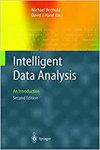基于GAN的过采样方法在表格二分类问题中的应用
IF 0.8
4区 计算机科学
Q4 COMPUTER SCIENCE, ARTIFICIAL INTELLIGENCE
引用次数: 0
摘要
数据不平衡问题存在于许多应用中。不同类别中样本数量的巨大差距会导致分类器向大多数类别倾斜,从而降低学习性能和获得结果的质量。大多数数据级不平衡学习方法仅通过线性生成或数据分布拟合使用与少数样本相关的信息来生成新样本。与这些算法不同,我们提出了一种新的基于生成对抗网络(gan)的过采样方法,称为OS-GAN。在该方法中,GAN从一些选定的多数样本中学习少数类的分布特征,而不是随机噪声。因此,经过训练的生成器发布的样本同时带有多数类和少数类的信息。此外,中心正则化使得所有合成样本的分布不局限于少数类的领域,这可以提高学习模型或算法的泛化性。在14个数据集和1个高维数据集上的实验结果表明,OS-GAN在g均值、精度和f1得分方面优于14种常用的重采样技术。本文章由计算机程序翻译,如有差异,请以英文原文为准。
Oversampling method based on GAN for tabular binary classification problems
Data-imbalanced problems are present in many applications. A big gap in the number of samples in different classes induces classifiers to skew to the majority class and thus diminish the performance of learning and quality of obtained results. Most data level imbalanced learning approaches generate new samples only using the information associated with the minority samples through linearly generating or data distribution fitting. Different from these algorithms, we propose a novel oversampling method based on generative adversarial networks (GANs), named OS-GAN. In this method, GAN is assigned to learn the distribution characteristics of the minority class from some selected majority samples but not random noise. As a result, samples released by the trained generator carry information of both majority and minority classes. Furthermore, the central regularization makes the distribution of all synthetic samples not restricted to the domain of the minority class, which can improve the generalization of learning models or algorithms. Experimental results reported on 14 datasets and one high-dimensional dataset show that OS-GAN outperforms 14 commonly used resampling techniques in terms of G-mean, accuracy and F1-score.
求助全文
通过发布文献求助,成功后即可免费获取论文全文。
去求助
来源期刊

Intelligent Data Analysis
工程技术-计算机:人工智能
CiteScore
2.20
自引率
5.90%
发文量
85
审稿时长
3.3 months
期刊介绍:
Intelligent Data Analysis provides a forum for the examination of issues related to the research and applications of Artificial Intelligence techniques in data analysis across a variety of disciplines. These techniques include (but are not limited to): all areas of data visualization, data pre-processing (fusion, editing, transformation, filtering, sampling), data engineering, database mining techniques, tools and applications, use of domain knowledge in data analysis, big data applications, evolutionary algorithms, machine learning, neural nets, fuzzy logic, statistical pattern recognition, knowledge filtering, and post-processing. In particular, papers are preferred that discuss development of new AI related data analysis architectures, methodologies, and techniques and their applications to various domains.
 求助内容:
求助内容: 应助结果提醒方式:
应助结果提醒方式:


